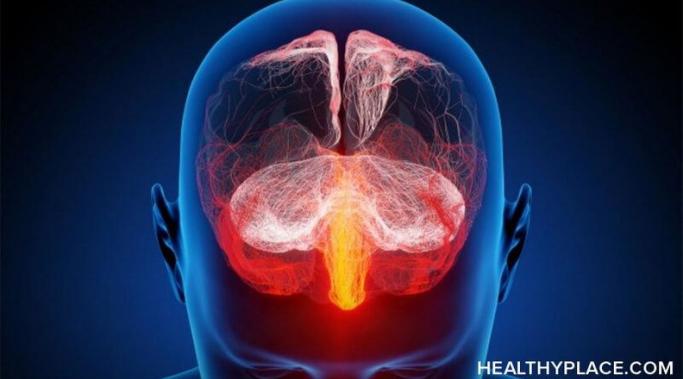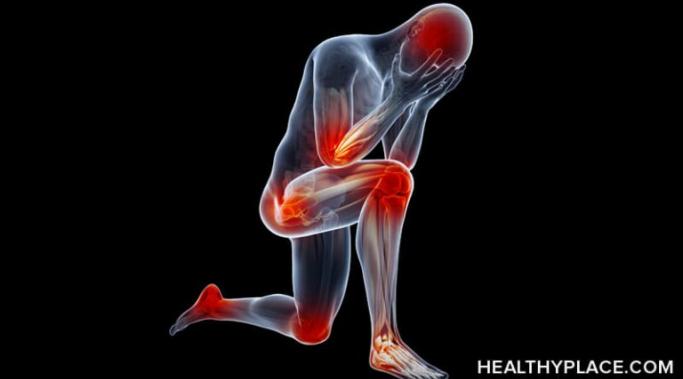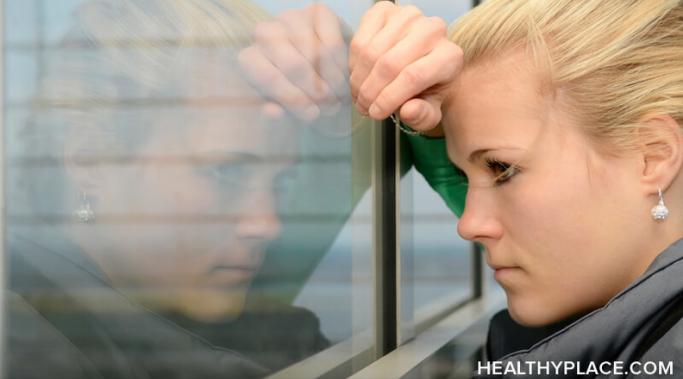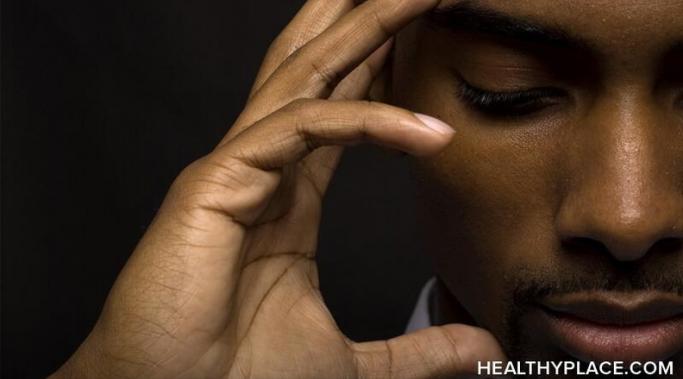Last night I drank.
Alcohol.
OK. You probably don't need to alert the media. But I do need to alert you about the horrible effects alcohol can have on a person with bipolar disorder.
Breaking Bipolar
Yes, psychiatric drugs can cause weight gain. It's not a rumor; it's not a myth; it's true. It's one of the most unfortunate things about medication.
But what can you do about drug-related weight gain?
As I work, I battle the stigma around mental illness. It feels like often, all day, every day, it's the only thing I do. But I do it because I feel it's important. I feel it matters. I feel it changes people's lives.
And one of the misconceptions I've heard multiple times recently is about bipolar and mental illness diagnosis. That by accepting a diagnosis of a mental illness this somehow removes the responsibility from the individual for their own wellness. That, somehow, a mental illness diagnosis makes the patient weak because now they are looking for someone to "save" them or "cure" them.
Well nothing could be farther from the truth. Getting a mental illness diagnosis is only the first step in what a patient must do in order to recover.
Today I was made aware of a site that went up specifically to make fun of, and show hatred towards, those with bipolar disorder. Specifically, the site is aimed at me and all those who use psychiatric services in the treatment of mental illness. Whoever wrote the site feels it's okay to take advantage of people with an illness, people who are in pain.
Well, it's not OK. We're not a joke. We are people. Real, flesh and blood people. And we do not accept your hatred. I do not accept your hatred.
I don't have anything against people with a disability. Why would I? Being disabled means nothing about the individual, it simply indicates their situation. It would be like being against people with siblings. It would just be silly.
Nevertheless, when considering my own bipolar disorder, I bristled against the word "disability." I know; this is hypocritical of me and a double standard. It's OK for someone else to be disabled but not me? I'm embarrassed to even think it.
But bristle I have and think it I (mostly subconsciously) did. The truth is, though, I'm a person with a disability.
Bipolar disorder is an affective disorder, in other words it affects your emotions (among other things). Bipolar disorder symptoms are often about feelings. Well, they're about FEELINGS. I feel HAPPY. I feel SAD. I feel IRRITATED. I feel ENERGETIC.
But one thing that's rarely recognized is that sometimes bipolar disorder is about feeling nothing at all.
I've been studying mental illness for a long time and while I knew the answer to this question, I couldn't really have told you why. This is mostly because I haven't done a lot of work on personality disorders, but I have had occasion to learn more about them recently.
No, bipolar disorder is not a personality disorder, and here's why.
Last night I was feeding my cats and thinking suicidal thoughts - I like to call that a Wednesday night. And I was thinking to myself that no one (save others in my position) understands what that is like - to go from some sort of normal person in the daytime to a sobbing, suicidal headcase at night. I thought about the fact that I have spent eight years talking about this very disease, this very state, this very problem, and yet still, people don't get it. No matter how many words I use, no matter how I phrase it, people simply do not understand.
So what do we do with the lack of understanding by others?
Happy new year to everyone. Thanks to all for joining me for a wonderful year of information, interaction and debate. I have learned a lot and I hope you have too. But in case you missed it, here are the top ten articles people were reading from Breaking Bipolar last year:
New Year's is not such a bad time. It's about looking back and learning, I think. We can look back over the year and determine why we did what we did and what it is we should do about it. It's about new beginnings, fresh beginnings, a clean slate. All of that is lovely really.
But with all that comes the dreaded New Year's resolution - the thing we say, hand to heart, that we will endeavour to do in the following year. But really, these resolutions have a negative impact on the mentally ill.




